InResidence
Circolando – Transdisciplinary Creation Space belongs to InResidence, a platform that offers artists opportunities to develop their work, in the visual arts and other artistic disciplines, in various spaces in the city of Porto. As part of this partnership with the Porto City Council, each year we award an InResidence grant of € 4,000-€ 6,000 for a medium-term residency by an artist / collective.
Within the scope of the Inresidence program, we present the projects carried out in previous years:
:
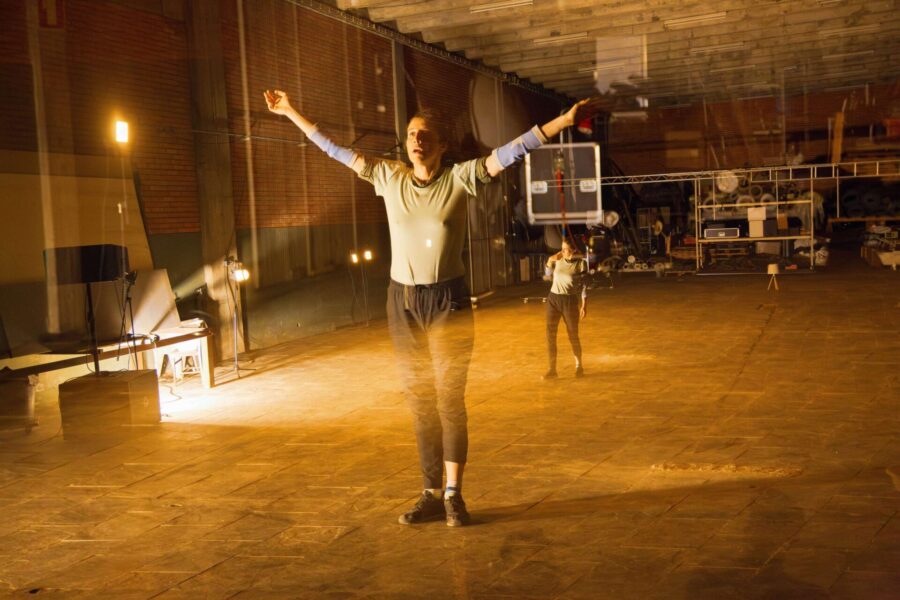
2025 | ATENTAMENTE, UMBRALES, Varinia Canto Vila (CL)
Atentamente, Umbrales is a choreographic investigation in its early stages, emerging from practices explored in previous creative processes — all driven by a persistent question: And now, where are we?
The project revolves around the concept of the threshold, understood as a passage between worlds, states, or dimensions, unfolding both in the spatial and sociopolitical realms.
During the residency at Central Elétrica, Varinia Canto Vila advanced with a different approach, bringing into the working space the questions that fueled her last three creations, as well as certain words that helped her imagine ways of dancing. A space that could become a device allowing her to move through states and dances that accelerate, like clothes in a washing machine on the spin cycle… while getting lost staring into this insistent and blinding present.
Varinia Canto Vila (Santiago, Chile) is a dancer, choreographer, and researcher. Recently, her creative practice has developed through the lens of the relationship between art and politics: in 2016, she began a research project on the relationship between law and movement; in 2023, she created the stage piece Maneras de Salir, which explores the distances and proximities between people and their socioeconomic and political realities; and in 2024, she developed MUNDOS, based on the notion of a fragmented society.
She has worked as a dancer with Meg Stuart, Moriah Evans, Las Delíricas, and Javiera Peón-Veira, among others. She is also the curator and organizer of Noche de Performance in Chile.
2024 | Ayiti, a Montanha que Assombrou o Mundo, Marconi Bispo (ARG)
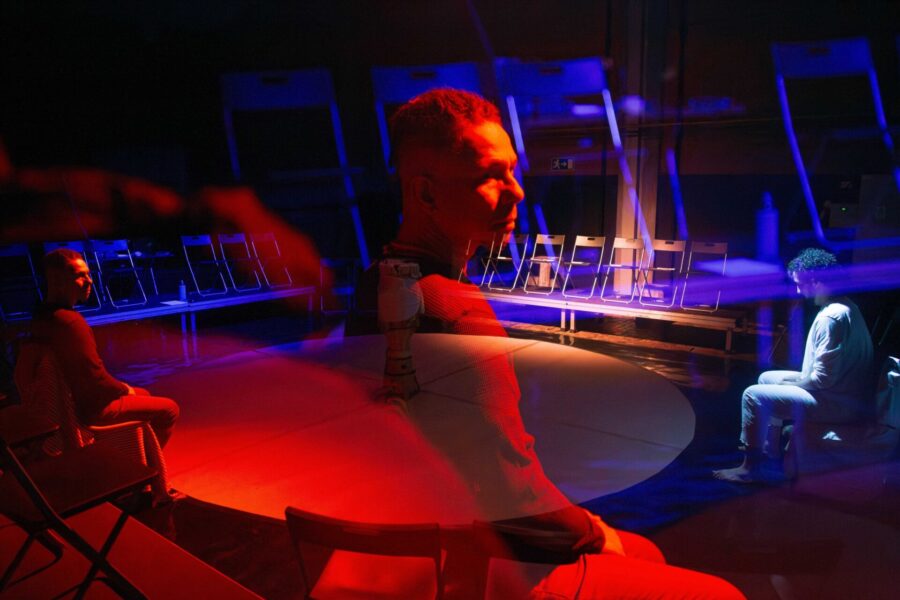
Ayiti, a Montanha que Assombrou o Mundo celebrates 220 years of the Haitian Revolution — one of the most significant events in the dismantling of colonialism in the Americas, though it has been constantly hidden and minimized, thus erasing the struggles of these peoples and underestimating their impact.
During a residency at Central in November, Marconi Bispo’s project seeks to address this invisibilization by highlighting the importance of Haitian Vodou, whose liturgical practices exalt revolutionary heroes.
The comparison with Afro-Brazilian religions reveals the significance of ancestry in the resistance and fight for freedom.
Marconi Bispo [Awofá Ifáwalé Mojìre Omikemi Awololá] holds a degree from the Federal University of Pernambuco in Art Education, with a specialization in Performing Arts [1999]. In 2024, he marked 29 years of professional activity in the performing arts, having worked with leading companies and directors from the state of Pernambuco.
He researches racial relations in Pernambuco — from the 16th century to the present — with a deep interest in the construction of gender markers within religions of African and Indigenous origin. He is an initiated priest of Ìyémọjá and Ọbàlùfọ̀n [2004] and of Ọrúnmìlà Bàbá Ifá [2023]. He also has connections with Jurema Sagrada.
Raised in a family of candomblé practitioners and immersed in terreiros from an early age, Marconi Bispo now seeks an amalgamation between his academic training and the Afro-Indigenous religious traditions.
2022 | PANAIBRA GABRIEL CANDA (BR)
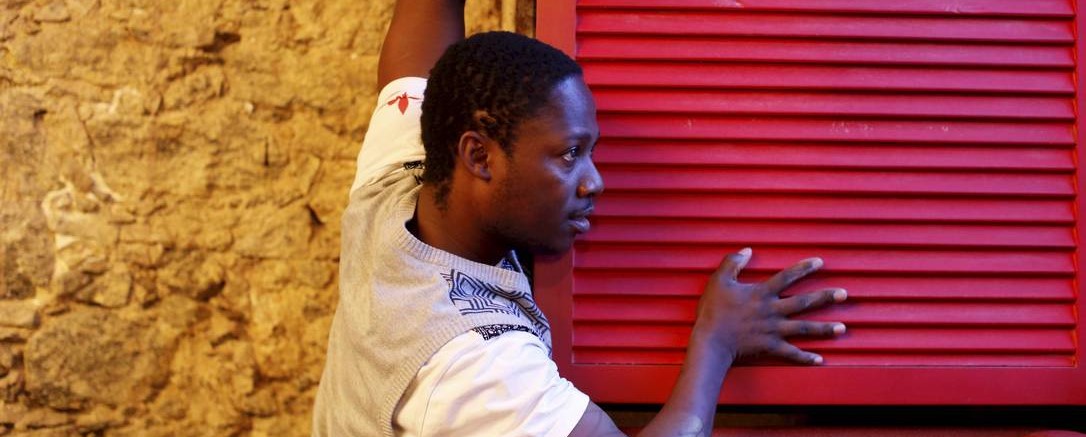
“Applauded Lies” wants to reflect on today’s world where “fake news” is part of this game of truth and untruth, this game of manipulation. In this research work, I intend to start a process that will delve into a dialogue with the world we live in today to find the subject in its essence inside and outside manipulation. I intend to take the viewer on a journey through the urgent issues of today with their clashes of civilization, political and ideological beliefs, fears, uncertainties… The work will premiere in November this year at the Euro-scene festival Leipzig, in Germany.
Panaibra Gabriel Canda, born in Maputo, Mozambique, is one of Africa’s most influential choreographers who reflects the country’s post-colonial upheavals as ambiguously as any other. In his numerous appearances at European Festivals, he is always reminded that intellectually grounded dance does not necessarily have to be boring, but can be dynamic and humorous. Panaibra’s famous Marrabenta Solos are an effective antidote to the sad Western-style conceptual dance.
2020 | LAGARTIJAS TIRADAS AL SOL (MX)
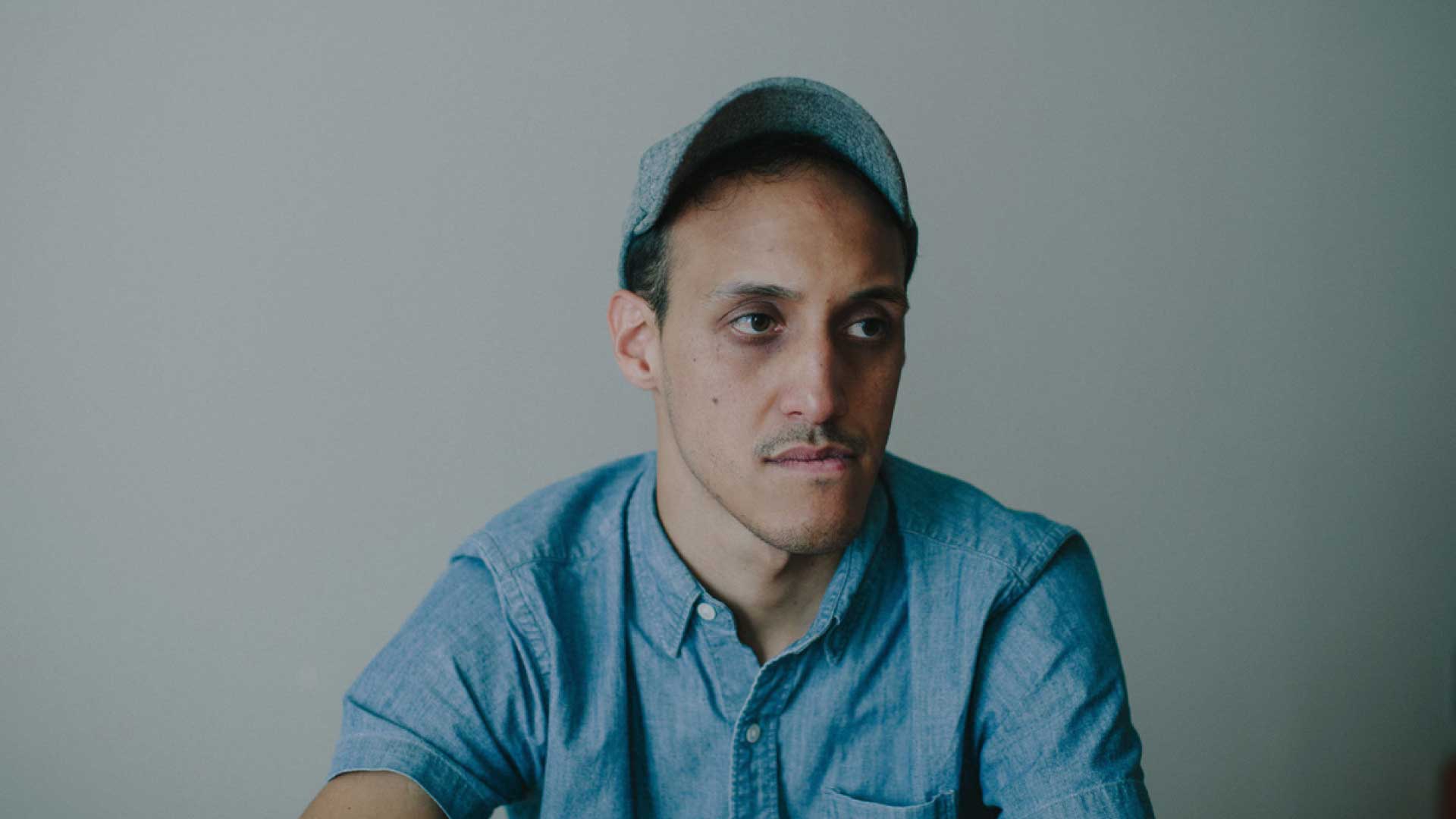
“Between 2020 and 2021, I participate in the Inresidence program convened by Circolando. The residence consists of tenure and space in the city of Porto to develop a project. “Campeche”, this project of pirates, little by little, was giving up space to others during my days in Porto. Little by little the house was developing a space to work on my artistic plantations in relation to fiction, little by little it was showing me from a mysterious and extraordinary perspective.” Lázaro Gabino Rodriguez / Lagartijas Tiradas al Sol
2018 | Good Colonizers, Pedro Vilela (BR)
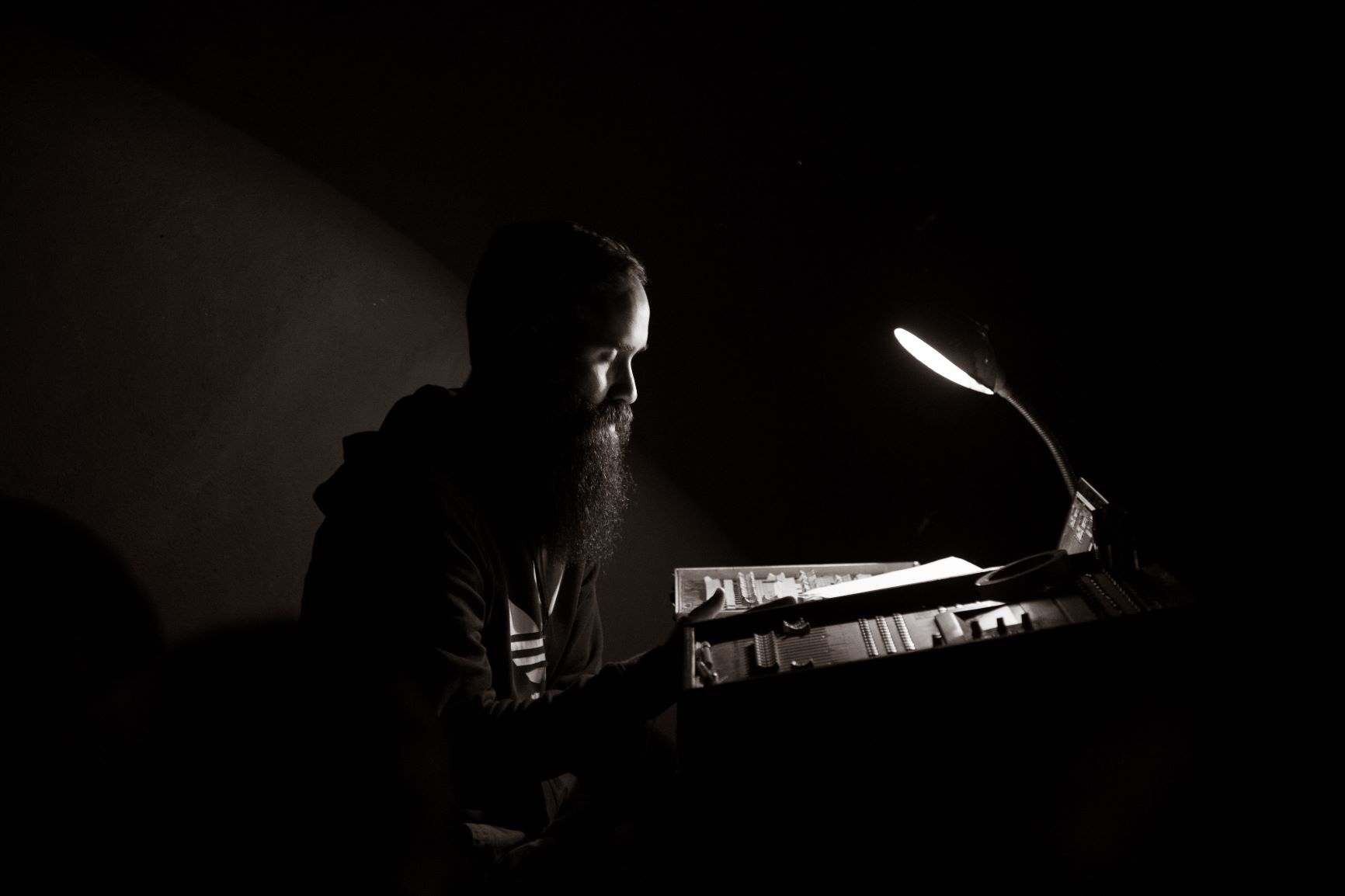
The starting point for the project came from reading a newspaper article that systematizes various approaches to colonialism, from both sides, Portugal and Brazil. The challenge would be: how to turn all these questions into an artistic work? How can we resume history in order to understand the present?
Leaning over historical documents, the Brazilian artist dedicated himself to looking for material that would provide narratives about the process of colonization of indigenous peoples, raising questions about how to subvert stigmatized representations and at the same time engage in a dialogue with the current self-representations of these more and more visible and plural. In the final part of the project, the artist Andrezza Alves also collaborated as performer.

Wayqeycuna is a project that explores the experience of being a migrant in your own territory, focusing on the collective memory of Jujuy, Argentina, and challenging narratives of whitening and power. In the mix between theatre and stage performance, Tiziano Cruz reflects on contemporary issues of migration policies and social injustices, with this residency in Porto marking the end of the trilogy “Three Ways to sing to a Mountain and find a Childhood”, six years old. research and writing.
Tiziano Cruz was born in Jujuy (Argentina). An interdisciplinary artist, his work fundamentally brings together visual and theatrical languages, performance and artistic intervention in public space. Using a selection of autobiographical marks, he composes scenic narratives, invoking the memory of the body and the power of his Andean ancestry. Tiziano completed his studies in Administration, Visual Arts, Performing Arts and Cultural Management at the Universities of Tucumán and Córdoba, currently attending the Master’s Degree in Public Culture at the National University of the Arts. He is the founder of the ULMUS Cultural Management Platform, dedicated to cultural mediation between different cultural organizations in Argentina and neighbouring countries, and is currently the Coordinator of the Audience Mediation Area at the Recoleta Cultural Center in Buenos Aires. His works have toured Argentina, Brazil, Canada, Mexico, Switzerland and Spain.
2021 | ALEJANDO AHMED

For the year 2021, the selected project is BONE CONDUCTION, by Alejandro Ahmed. A residency on transduction and otherness, guided by the investigation of the physical/digital relationship between tactile conductors, contact microphones, voice, light, word and movement, crossed by deafness and bone fragility. Condutor Óssea proposes the creation of a choreographic object that tensions fiction to access other politics of reality constructions.
Alejandro Ahmed is choreographer and artistic director of Cena 11 Cia. de Dança (Santa Catarina – Brazil). His field of interest is located in new definitions for the concept of choreography, reflecting on terms such as choreographic situation, immaterial choreography and generative dance, present in 17 works created between 1994 and 2018.
2019 | Ecstasy Machine, Maikon K (BR)

Rites, images, objects and substances that are linked to the idea of reaching ecstasy and the possibility of transforming them into performance material. Throughout his residency, Maikon K looked for ways to generate / access ecstatic flows in the body, through breathing, movement, vocalization, staging and relationship with materials, starting from some questions: What is ecstasy? How to build a body-organism to perform ecstasy?
Ecstasy researched as a primitive form (which has its origin in shamanic dances and initiation rites) until its location in contemporary social practices (digital technologies, universe of raves, drugs, sex and fashion market, dangerous sports, physical activities, religions, pop music, mass movements, etc.). From the social body to the anarchic body. From organization to chaos that creates new forms.
2017 | LOA, DEMO (PT)

LOA (also spelled lwa) are the spirits of Haitian Voudou and Louisiana Voodoo. They are also referred to as “mystères” and “the invisible ones”, intermediaries between Bondye (French: Bon Dieu, meaning “good God”) – the Supreme Creator, who is distant from the world – and humanity.
In this residency proposal, Gil Mac and Cláudio Vidal, performers of the Guimarães based collective DEMO (Multidisciplinary and Organic Experimental Device), joined the composer and sound artist Tiago Ângelo and the director and anthropologist Gonçalo Mota to launch a project that proposed to work on the intersection of physical theater with interactive technologies, sound art and experimental video, based on the work of the director, choreographer, dancer and writer Maya Deren, author of the essay Religious Possession in Dancing, dedicated to the study of Haitian Voodoo .

